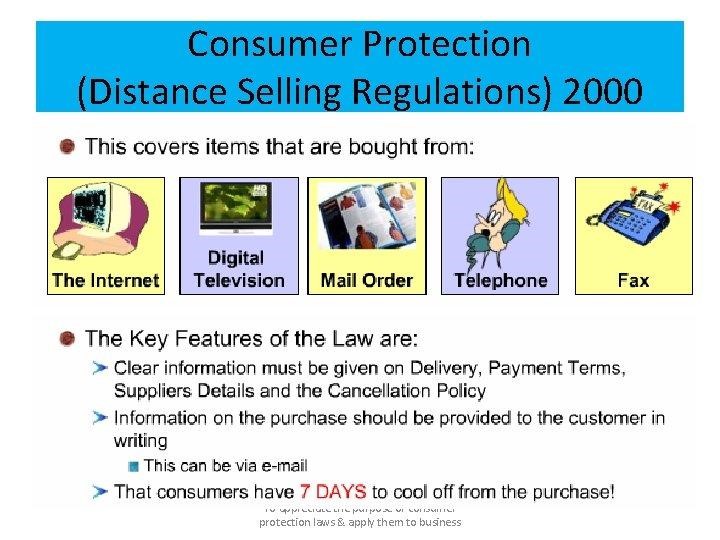Academic Law Writing
PHD Dissertation
- EU Law
- Writing a Master’s Law Essay
- Writing a Master’s Law Dissertation
- What is an LLM?
- UK Legislation of Corporate Crime
- Unconscionable Conduct In Financial Services Of Australian Law
- Canadian Law Of Racial Profiling
- Consumer Protection In Distance Selling
- European Union Legal System
- Doctrine Of Self Defence In International Law
Consumer Protection In Distance Selling
The use of distance selling methods is quickly becoming a popular feature of the internal market. Owing to the lack of specific face-to-face communication between the seller and the customer, customers are subjected to certain risks as it promotes goods or services and seeks the consumer’s permission to conclude the deal. Furthermore, due to a lack of knowledge, customers are unable to assess the quality of the goods or services provided before making a decision[1].

Fig1: Consumer Protection In Distance Selling
Any jurisdiction’s customer protection laws are intended to discourage unfair practises and frauds in business transactions, as well as to maintain a positive connection between the client and the consumer. The goal of consumer regulation is to protect that customers have rights that are clearly stated, and that businesses selling goods and services are fully familiar with the legal obligations.
In general, before a customer places an order, the seller of distance sale should include specific information, such as written instructions on how to withdraw, a contact details, and specifics of any guarantees. Prior to the distribution of services and products, the Seller will give an order confirmation to the customer . Consumers must be given the opportunity to cancel the contract (within a certain time frame). If the goods provided are defective, a compensation or substitute will be issued upon the recovery of the defective goods.
